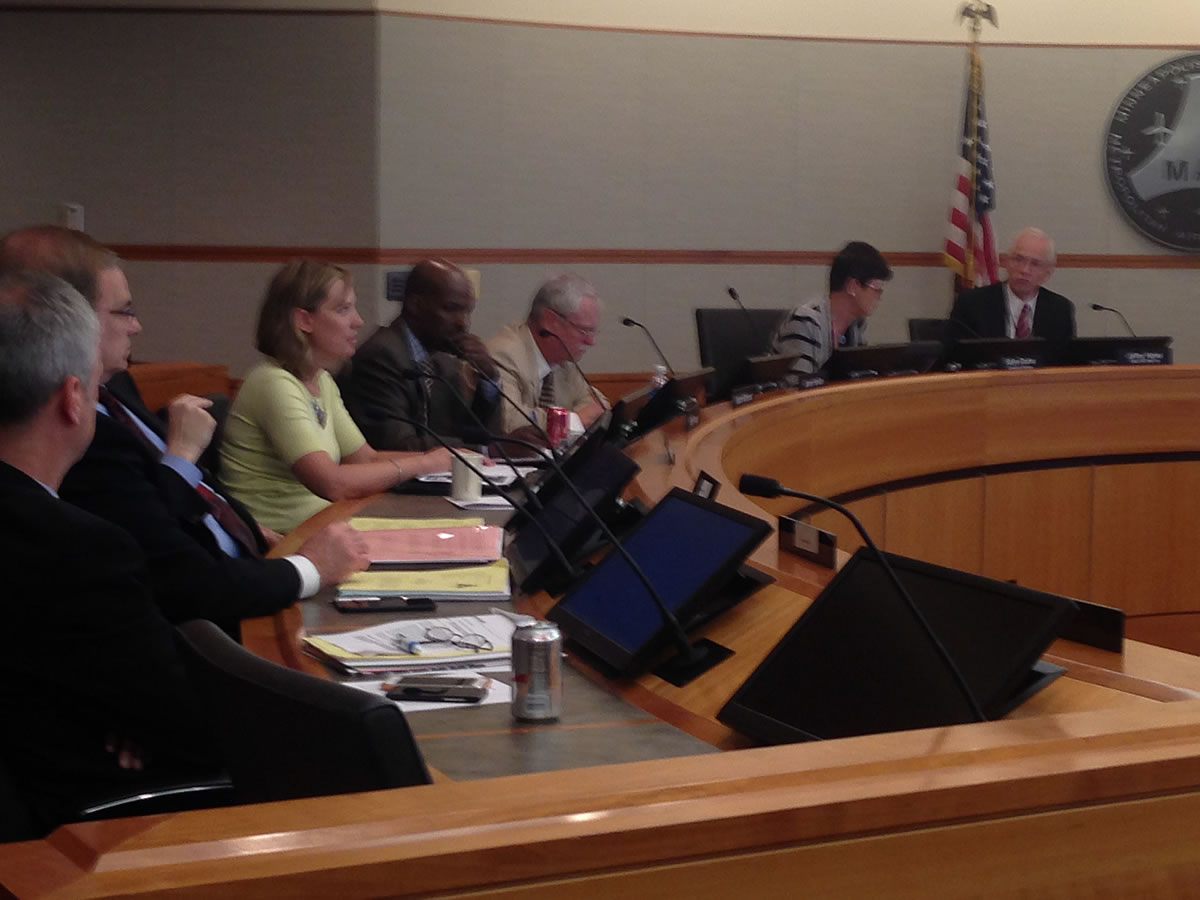

Share
The Metropolitan Airports Commission took the unprecedented step Monday of setting a $10 minimum wage for companies operating at Minneapolis-St. Paul International Airport. While lauding the move, workers said they will keep organizing for more.
“It is a change, but it is not the change we are looking for,” said Abera Siyoum, a cart driver and activist in 15Now, a movement for a $15-an-hour minimum wage. “Ten dollars is still a poverty wage.”
Nonetheless, the MAC action is likely to have ripple effects around the state and nation. For the last several months, commissioners have had the issues of living wages, paid sick time and union organizing on their monthly meeting agenda. In December, the commission adopted a requirement that airport contractors provide paid sick leave to employees.
On Monday, they approved a requirement that contractors pay $1 per hour above the state minimum wage, effective Aug. 1. By law, Minnesota’s minimum wage will go to $9 an hour on Aug. 1, meaning the airport minimum wage will be $10 an hour. A year later, they will rise to $9.50 and $10.50 respectively.
Workers covered by the new policy include aircraft cleaners, skycaps, baggage porters, cart drivers, wheelchair attendants, workers who accompany minors in the airport and retail and concessions employees.
Many of these workers used to be employed directly by airlines, but their work was contracted out to companies that have reduced wages and benefits. Employees of airlines that fly through MSP are not covered by the new minimum wage and earned sick time policies.
The MAC vote was 11-4, with some commissioners objecting to the commission taking unilateral action to raise wages.
“This is bad public policy,” said Commissioner Patti Gartland. She was joined in opposing the measure by Timothy Geisler, Rick King and Don Monaco.
Commissioner Erica Prosser said the method may be imperfect, but was needed when “weighed against policies that allow companies to make untold amounts of money while essentially getting public welfare.”
She called the minimum wage policy “a small step, a first step,” adding “It doesn’t get the MAC out of the game that I think some commissioners want to be out of.”
Commissioner Ibrahim Mohamed, a minimum wage airport worker recently appointed to the MAC by Governor Mark Dayton, agreed, saying, “I hope we keep going.”
Clearly some commissioners, accustomed to more traditional airport matters, were tiring of the debate over wages.
MSP workers who gathered outside the meeting said the organizing is far from over. They pledged to continue pressing the MAC for a $15 minimum wage, which would ease the pressure on many who must work two or three jobs to make ends meet.
They also pledged to continue organizing with the Service Employees International Union, an effort that has been undermined by confusion over whether they would be covered by the National Labor Relations Act or the Railway Labor Act.
While continuing to organize, SEIU has urged the MAC to consider a concept called the “Quality Service Wage,” that would tie wages to the levels of existing union contracts, such as the one covering janitors at MSP. In a memo issued at Monday’s meeting, MAC staff presented an analysis of the Quality Service Wage that said the proposal raises legal issues and would probably be pre-empted by federal law.
Workers at rental car agencies outside the airport had sought to be covered by the new minimum wage, but the MAC did not include them. Paul Slattery, an organizer for Teamsters Local 120, said some 200 workers at Avis, Budget and Hertz have union representation and already earn $10 an hour, but another 100 are non-union and earn less.
In addition to raising the wage, commissioners adopted language that clarifies the implementation of the earned sick time policy. The MAC came under fire last month when employees complained that companies were not allowing them to utilize the earned leave.
The MAC voted to require all companies covered by the policies to post notices informing workers of the new minimum wage and paid sick leave and their right to keep their job when a new company takes over a contract.

